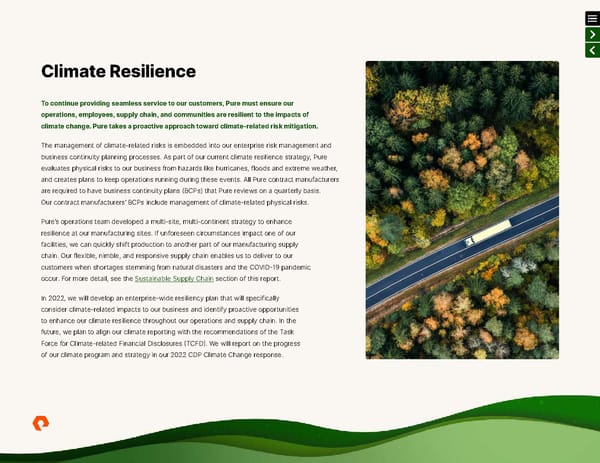Climate Resilience To continue providing seamless service to our customers, Pure must ensure our operations, employees, supply chain, and communities are resilient to the impacts of climate change. Pure takes a proactive approach toward climate-related risk mitigation. The management of climate-related risks is embedded into our enterprise risk management and business continuity planning processes. As part of our current climate resilience strategy, Pure evaluates physical risks to our business from hazards like hurricanes, floods and extreme weather, and creates plans to keep operations running during these events. All Pure contract manufacturers are required to have business continuity plans (BCPs) that Pure reviews on a quarterly basis. Our contract manufacturers’ BCPs include management of climate-related physical risks. Pure’s operations team developed a multi-site, multi-continent strategy to enhance resilience at our manufacturing sites. If unforeseen circumstances impact one of our facilities, we can quickly shift production to another part of our manufacturing supply chain. Our flexible, nimble, and responsive supply chain enables us to deliver to our customers when shortages stemming from natural disasters and the COVID-19 pandemic occur. For more detail, see the Sustainable Supply Chain section of this report. In 2022, we will develop an enterprise-wide resiliency plan that will specifically consider climate-related impacts to our business and identify proactive opportunities to enhance our climate resilience throughout our operations and supply chain. In the future, we plan to align our climate reporting with the recommendations of the Task Force for Climate-related Financial Disclosures (TCFD). We will report on the progress of our climate program and strategy in our 2022 CDP Climate Change response.
 ESG Report | Pure Storage Page 24 Page 26
ESG Report | Pure Storage Page 24 Page 26